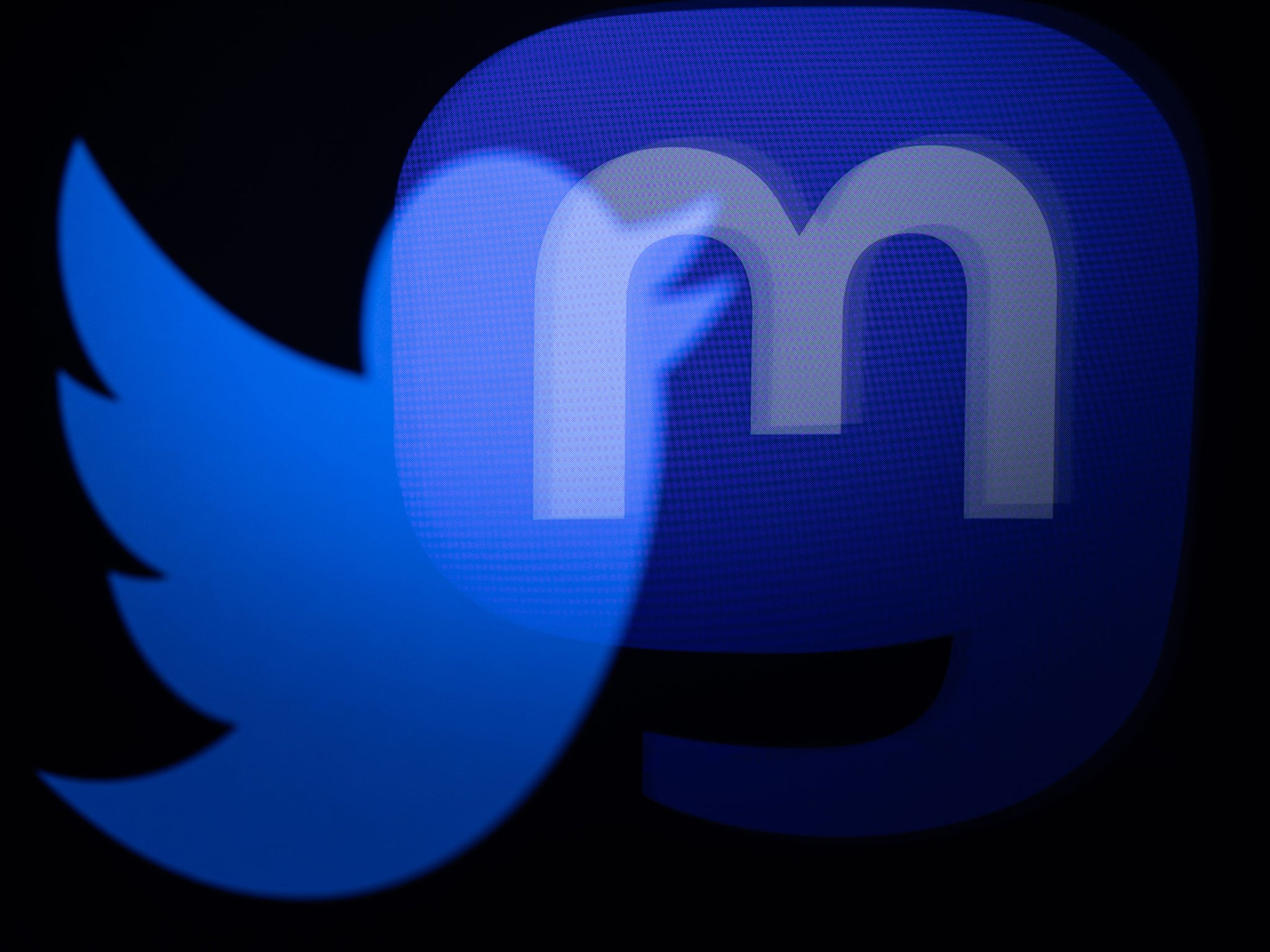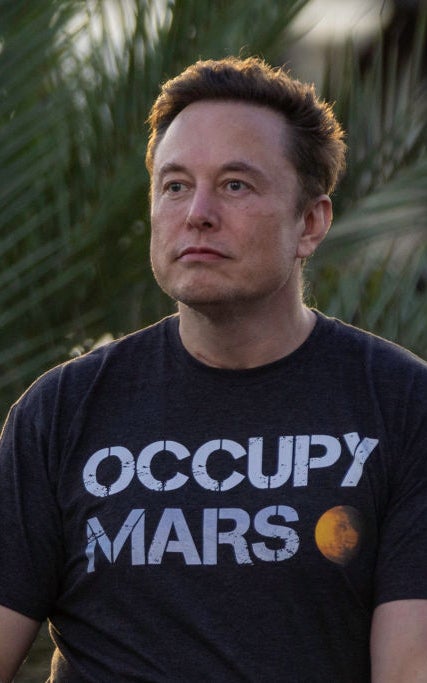
Social media, more than almost any other corner of business, is a winner-takes-all endeavour. We gravitate towards whichever platform has the most users. We bring more friends with us. Monopolies rise, pretenders are crushed. The history of social media is littered with corpses; it is an elephant’s graveyard.
Enter Mastodon, inauspiciously named for the extinct elephantine mammal. Like Twitter, Mastodon is a microblogging site, and as such, Twitter users will find many aspects of Mastodon familiar. In the place of tweets, for instance, we have “toots”. An apter term there could hardly be for a brief emission of hot air.
There has been a surge of interest in Mastodon. Eugen Rochko, its founder, CEO and sole full-time employee, reports that the site has surpassed 1 million daily active users. Independent analysis tells the same story. Mastodon is on the rise, and it’s all happened since Elon Musk took over Twitter.
The world’s richest man has owned Twitter for little more than a fortnight. In that time, he has laid off around half of the company’s 7,500 workers and begun a chaotic overhauling of the blue-tick system that currently divides users into, as he put it, “peasants and lords”. Twitter’s content moderation will also be overhauled, Musk has said. “One thing is for sure,” he tweeted last week, “it isn’t boring!”
It hasn’t been boring, but it’s been a bit much for some users. These are the ones who find Musk exasperating, have gone to Mastodon rather than pay him £8 a month for the ambiguous subscription service Twitter Blue, and have come back to Twitter to tweet about it. How representative are these Disgusteds of Twitter dot com? I put the question to Axel Bruns, an Australian media professor.
Ahead of the curve, Bruns set up a Mastodon account in 2018. Over the past couple of weeks, he has received a flurry of emails notifying him of new users following his account. “There’s definitely a trend of people at least setting up accounts,” he says.
But that tells us less than we might think about the future of Mastodon. “We don’t really know to what extent the people who are saying ‘Well, I’m leaving’ are actually deleting their accounts or just setting up an account somewhere else,” says Bruns. “We don’t know whether that’s the performance of being fed up with Twitter, Elon Musk, and so on, or whether it’s a mass movement.”
Before good-quality data comes in, we can’t do much more than make an educated guess. Of the apparent furore, Bruns notes: “It’s quite possible that the ordinary Twitter user isn’t really paying that much attention.”
What would it take for these ordinary users to leave? Given the centrifugal power of Twitter’s giant user base, Bruns thinks a “serious degradation” would have to occur for people to leave en masse. That degradation could take the form of “a growth in unverified blue-tick accounts getting nastier and weirder”, or it could be just plain old technical failure.
And what would it take for Mastodon to be these ordinary users’ destination? Celebrity users would help, says Brun; Oprah Winfrey’s endorsement brought many people to Twitter. Once a critical mass joins Mastodon, the rest will follow.

But this will only happen if it’s easy to sign up to Mastodon and to understand it. Where Mastodon differs from Twitter is that it is not centrally hosted. Instead, it is divided into umpteen “instances”. Think of a Twitter that is divided into smaller Twitters – a Twitter for Francophones, a Twitter for furries, a Twitter for people who are into open-source software – and you’ll get the idea. Instances are policed by committees of users rather than being administered solely by a central hub.
The process of joining Mastodon, says Bruns, needs to be “as seamless and as easy as possible… and I don’t think we’re quite there yet”. He doesn’t know if it’ll ever be there, either. “Mastodon is not simply like going to a Twitter clone. It’s not simply going to somewhere else that looks and feels like Twitter. It’s something different, and learning takes time.”
Nevertheless, Bruns predicts further growth, especially if someone “develops a front end” – the interface that users interact with – “that makes it look more like Twitter, just to make that transition easier”.
One thing that’s very apparent is that Mastodon is considerably less vitriolic than Twitter
The nature of that growth, though, might not be as simple as the Twitter user base shifting to Mastodon, he adds. “It might be more just [using it] as a back-up, and finding ways to use the two platforms side-by-side.”
Bruns’s worries about Mastodon’s complexity are echoed by Drew Benvie, a consultant, commentator and lecturer in applied social media and digital technologies. “Mastodon’s growth would be even greater were it not for the app’s complexity, as signing up feels confusing for the first-time user,” he says. “Mastodon’s unique set-up of servers and instances to choose from is a mile away from the likes of Instagram or TikTok, which dwarf Mastodon in terms of size. But that’s exactly what many social media users want: an app that is driven by purpose, not profit.”
Any prediction could be upended by another change of ownership. Musk, says Bruns, is “clearly in over his head. He’s got no idea how to run a company like that. He doesn’t understand, fundamentally, the regulations and the obligations around it. At some point, he might have to admit that and move out of the way – or just, you know, run the whole thing into the ground because he can’t admit that he has been wrong. Any of that could happen, basically.”
What might help Mastodon is if it can create a more attractive user experience than Twitter’s. Outrage is good for user engagement, but not for user enjoyment. It’s sometimes observed that all social networks play on one vice or another – of the seven deadly sins, Twitter maps onto wrath, Instagram to envy, OnlyFans to lust. A common theme among the “I’m leaving Twitter” broadcasts is the leavers’ hope that Mastodon will be a less argumentative environment.
“I think it will be a much better experience,” says Mark Brill, a future media specialist who lectures at Birmingham City University. “One thing that’s very apparent is that Mastodon is considerably less vitriolic than Twitter.”
It is less vitriolic, but that can be a little sanctimonious: “congratulations,” everyone seems to say, “you’ve made it to a far more civilised place”. A decentralised Daunt Books, if you will. One day, though, we might look back on this atmosphere with fondness, just as people look back fondly on the early days of Twitter.
“I’m not saying it’s all going to be sunshine and flowers,” says Brill. But those who want to troll or post hate speech will “either get thrown out very quickly by the servers they’re on, or they’ll go to servers that will just become these little corners where people do a speech and then just leave”.
They could also end up on other sites entirely. Some right-wingers have migrated to Gab, another site similar to Twitter. Donald Trump, banned from Twitter, now holds forth on Truth Social, presumably reasoning that you cannot be expelled from a site you own. Elon Musk wants Twitter to remain the world’s town square, but our online future might be one of villages.
Brill points out that Mastodon’s decentralised structure makes it a safer venue for people who want to speak out against oppressive governments. On the other hand, “it doesn’t really have much of a revenue model”. Its appeal, Brill thinks, will be niche rather than broad.

The statistical likelihood is that we will come to think of Mastodon in the way we do of Houseparty. Remember the casual video chat app that, during lockdown, reported 50 million sign-ups in a single month? It’s already been closed down.
Social media success is always double-edged. The more power a social network acquires, the more trade-offs it is forced into and the more misjudgements it makes. Innocent intentions become warped by new incentives. Facebook’s origins were far from innocent: initially a site for rating students’ attractiveness, it became a massive data-harvesting operation. Has it made the world a better place? It’s hard to say, but it doesn’t seem very likely.
Mastodon could defy the trend. It could plausibly be so well-designed that it overcomes those strong forces, squares the various circles, and becomes, for the long term, a social network that is superior to Twitter. But to have flowered briefly, and to be fondly remembered, might not be much worse a fate than to live in obloquy, growing slowly but inexorably into exactly the kind of company that your users seek to escape.
It might even be that Mastodon is admiringly copied on the way to being overpowered. That would be a simpler path towards improving social media – showcasing a higher standard of civility or moderation, and forcing competitors to adapt in kind. Mastodon probably won’t win the game, but that doesn’t mean it can’t change it.

.jpg?w=600)





